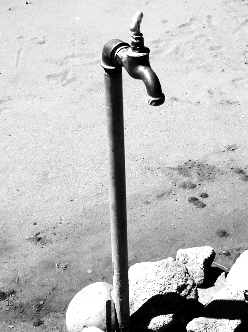Keen wait for irrigation allocation
 North Queensland communities are eagerly awaiting the outcome of a water allocation increase.
North Queensland communities are eagerly awaiting the outcome of a water allocation increase.
A State Government process is underway that will release an additional 250,000 megalitres from the Flinders River, for what many inland community residents hope will be a long-awaited irrigation revolution.
The new flows should allow the development of new irrigated agriculture, and so bring a boost to regional jobs and the economy.
“There is certainly a lot of opportunity that would hopefully stem from new industries that would be created, but we've got a long way to go and there is a lot of work [to be done],” McKinlay Shire Mayor Belinda Murphy said at a recent ABC radio event.
Cr Murphy said applications for water were coming from all kinds of producers, from the biggest farming firms down to individual producers.
“There is such a will there,” she said.
“They want to look at this, they want to diversify, they want to help themselves drought-proof.
“All these factors are really, really important.
“And [there was] an investment forum just before Christmas, 110 people coming to that tells me there is a really strong will for this to happen.”
But there will be challenges in building the new industries, Cr Murphy said, and that local farmers would be cautious about risky new ventures, particularly for greenfield cropping sites.
For many producers, its costs upwards of $10,000 a hectare to develop new cropping sites.
“These landholders, they need a lot more help and a lot more incentive than just a water tender process to do so,” she said.
Queensland Mines and Natural Resources Minister Anthony Lynham said it was good to finally see some progress on the decades-old vision for an agricultural revolution around the Flinders River.
Bidding started at $45 a megalitre.
“We are giving everybody the opportunity to tender, that's the small farmers through to the large corporations,” Mr Lynham said.
“Everyone has an equal right for the water in the Flinders River.”
He said that final decisions would be based on price competitiveness and the ability to convert the water into productive assets.
“This water in this region, and it is good country up there, it's a catalyst for jobs and development,” Lynham said.
“When I was in North Queensland, and at the jobs summit in Cairns, I had so many delegates from overseas coming to see me specifically about agricultural projects in the Flinders and Gilbert [catchments] and a lot were Chinese investors.”








 Print
Print